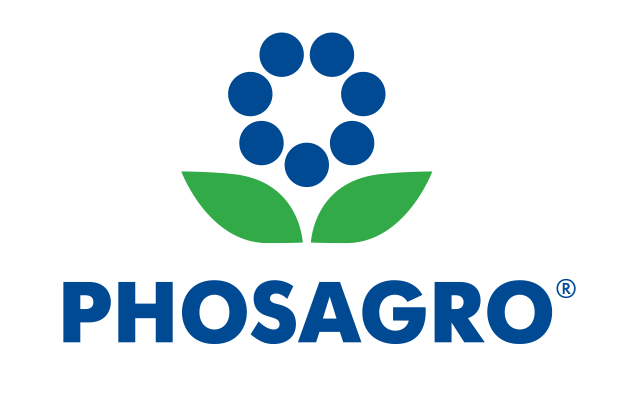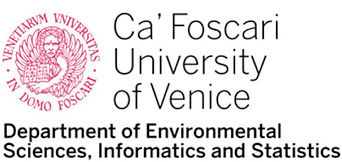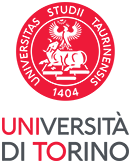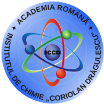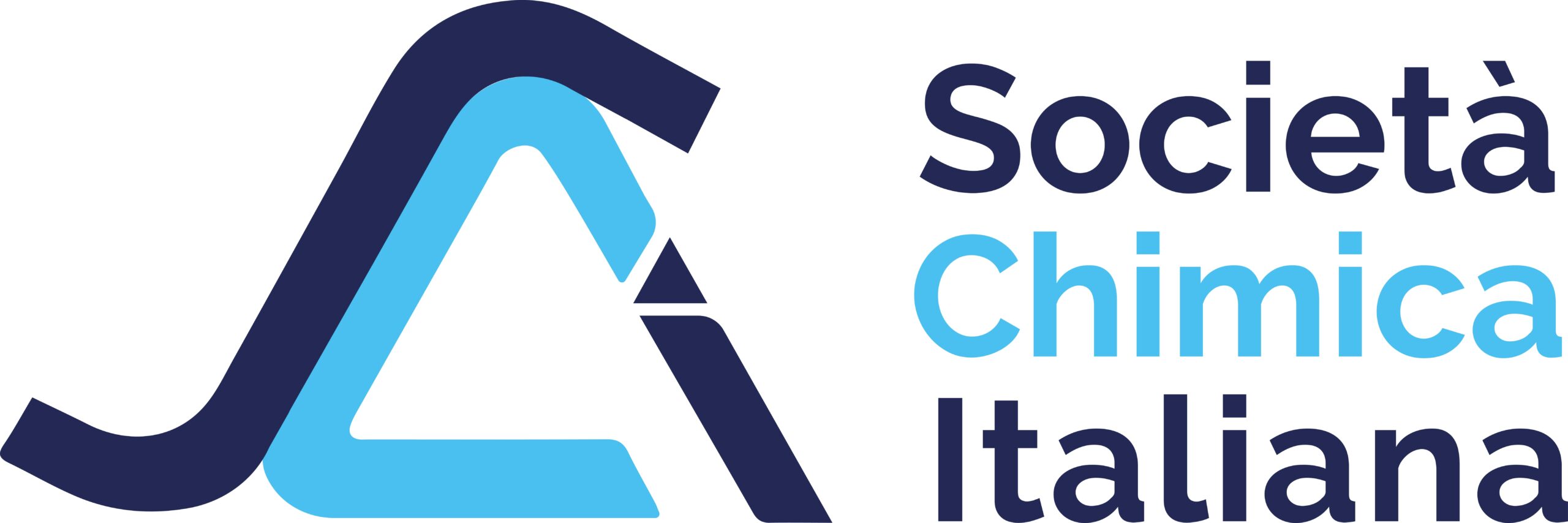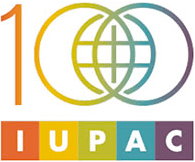Green Chemistry Summer School 2025 Professors
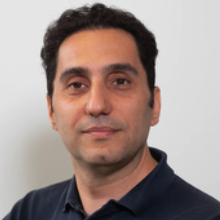
Fabio Aricò
Ca’ Foscari University of Venice, Italy
Fabio Aricò is Full Professor at Ca’ Foscari University, Venezia Italy. In 2003 he has been awarded the Ph.D. in chemistry at the University of Reading (UK). He worked at Strasbourg University and at the University of Los Angeles, California in the laboratories of Sir. Prof. J. Fraser Stoddart (Nobel Price 2016). He then worked for 6 years at the Interuniversity Consortium “INCA” under the supervision of Prof Tundo. His research interests include green chemistry, dialkyl carbonate chemistry, heterocycles, bio-based platform chemicals and bio-based polymers. He has published almost 100 high-impact scientific papers.

Marcello Baricco
University of Turin, Italy
Marcello Baricco is a Full Professor of Materials Science and Technology at the University of Turin. His research focuses on metallic materials and energy applications, including hydrogen storage and fuel cells. He has authored around 400 publications with over 7,000 citations (h-index = 40). He has led several regional, national, and European projects, including the EU-funded HyCARE project. He represents Italy in the IEA-HIA Task 40 and is involved in Hydrogen Europe Research and the European Energy Research Alliance. He also coordinates the hydrogen and fuel cell platform at the University of Turin (H2@UNITO)
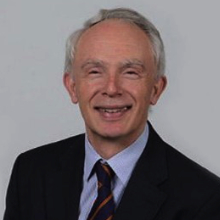
Christopher Brett
University of Coimbra, Portugal
Christopher Brett is a full professor of chemistry at the University of Coimbra, Portugal and was President of the International Union of Pure and Applied Chemistry (IUPAC) 2020-21. He has published over 320 research articles, many with international and national collaboration, 22 book chapters and is co-author of 3 books. His research interests have focused principally on the development of new materials in electrochemistry and their application in different areas, particularly in sensing and corrosion protection.
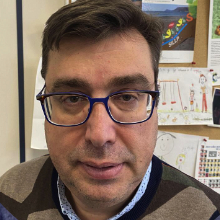
Eduardo Garcia-Verdugo Cepeda
University Jaume I, Spain
E. García-Verdugo is a Professor of Organic Chemistry at University Jaume I (Spain), specializing in the integration of enabling techniques to develop more efficient and greener organic transformations. He obtained his chemistry degree from the University of Valencia (1995) and his PhD in chemistry from University Jaume I (2001). After working as a researcher at Nottingham University (UK), he returned to Spain, holding positions at University Jaume I and as Cientifico Titular at CSIC (Madrid). His research focuses on catalysis, polymeric materials, continuous flow processes, and the use of neoteric solvents such as ionic liquids and supercritical fluids.
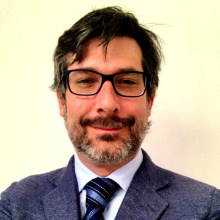
Alberto Cugnetto
Confindustria Cuneo, Italy
Alberto Cugnetto is a Winemaker Advisor with over 15 years of experience in the wine industry. He holds a PhD in Natural Science and Innovative Technologies from the University of Turin, specializing in multivariate elemental content analysis to trace wine terroirs, particularly in Nebbiolo wines. His research has been published in Multivariate Elemental Content Analysis for Tracing the Wine Terroirs.
Alberto has also contributed to several scientific publications on Near-Infrared Spectroscopy (NIRS) for vineyard monitoring and the impact of biofertilizers on milk quality. His expertise extends to the application of advanced chemical methodologies in viticulture and enology. Additionally, he integrates his scientific knowledge into innovative winemaking techniques and sustainability strategies.
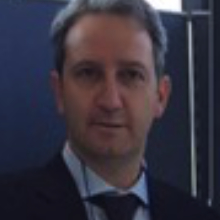
Alberto Figoli
National Research Council of Italy (ITM-CNR), Italy
Alberto Figoli is serving as the Director of the Institute on Membrane Technology of the National Research Council of Italy (ITM-CNR). He is author of more than 170 research papers in peer reviewed journals and several book chapters; 5 books and 3 patents. Dr. Figoli is expert in the field of membrane technology, particularly in membrane fabrication and characterisation and their application in the environmental field.
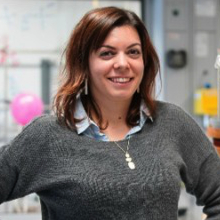
Giulia Fiorani
Ca’ Foscari University, Italy
Giulia Fiorani is an Associate Professor at Ca’ Foscari University of Venice. She holds a Ph.D. in Chemical Sciences from the University of Rome “Tor Vergata” and has conducted postdoctoral research in various institutions, including the University of Padua, ICIQ (Spain), Imperial College London, and the University of Oxford. Her research focuses on developing synthetic and catalytic methodologies for renewable-based molecules and materials. She has co-authored 19 publications and three book chapters, with an h-index of 10. In 2017, she received the Junior Prize for Research from the Italian Chemical Society.
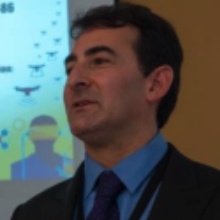
Jonathan Forman
National Security Directorate of Pacific Northwest National (PNNL), USA
Jonathan Forman is a Science and Technology Advisor in the Global Security Technology and Policy Group under the National Security Directorate of Pacific Northwest National (PNNL). Prior to joining PNNL, Dr Forman served as the first Science Policy Adviser to the Organisation for the Prohibition of Chemical Weapons (OPCW) from 2013- 2020. Prior to the OPCW, Dr Forman worked for a series of venture capital backed biotechnology startup companies developing molecular diagnostic and bioanalytical assay technologies for genomic, immunoassay, and cell capture applications. Dr Forman is an author on more than 40 scientific papers, book chapters and patents.
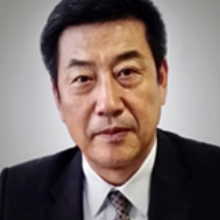
Buxing Han
Chinese Academy of Sciences (CAS), China
Buxing Han is Professor at Institute of Chemistry, Chinese Academy of Sciences (CAS), Director of CAS Key Laboratory of Colloid, Interface and Chemical Thermodynamics and Director of Shanghai Key Laboratory of Green Chemistry and Chemical Processes. His research interests include the study of the physicochemical properties of green solvent systems and their applications in green chemistry. He has published more than 800 papers in peer-reviewed scientific journals and 70 patents. He is the Chairman of Interdivisional Committee on Green Chemistry for Sustainable Development (IUPAC) and the President of Beijing Energy and Environment Society.
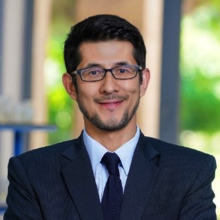
Mirabbos Hojamberdiev
Mads Clausen Institute, University of Southern Denmark, Denmark
Mirabbos Hojamberdiev is an Associate Professor at the Mads Clausen Institute, University of Southern Denmark. He holds a Ph.D. in Materials Science from Tokyo Institute of Technology and has conducted research in Japan, China, the USA, Germany, Argentina, and Peru. His work focuses on the synthesis and application of visible-light-responsive photocatalytic materials for energy and environmental applications, with over 230 publications. He has received prestigious awards, including the TWAS Prize (2010), the Georg Forster Research Award (2019), and the IUPAC-Zhejiang NHU Award (2023). He is a member of ACS, RSC, and other scientific societies and serves as a Visiting Professor in Japan and Uzbekistan.
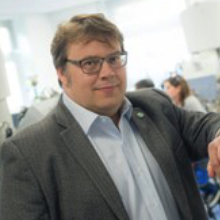
Peter Licence
University of Nottingham, UK
Peter Licence is Professor and Head of Chemistry at the University of Nottingham, he is also the inaugural Director of the GlaxoSmithKline Carbon Neutral Laboratories for Sustainable Chemistry, a world-leading facility dedicated to sustainable chemistry solutions for the fine chemicals and pharmaceutical industries. His expertise lies in synthetic organic chemistry, ionic liquids, and surface science, with pioneering contributions to catalysis, small molecule sensing, and extraction processes. Prof. Peter Licence also serves as Editor-in-Chief of the ACS Sustainable Chemistry & Engineering and ACS Sustainable Resource Management journals, Director of the EPSRC Centre for Doctoral Training in Resilient Chemistry, and Adjunct Professor at Addis Ababa University. His research and leadership are driving innovation toward net-zero solutions in chemistry.
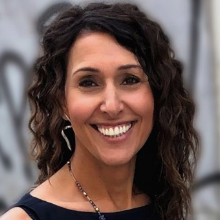
Elisa Moretti
Ca’ Foscari University Of Venice, Italy
Elisa Moretti is an Associate Professor of General and Inorganic Chemistry at Ca’ Foscari University of Venice. She specializes in the development of advanced 0-2D materials for environmental and energy applications, including photocatalysis and electrocatalysis. She has authored over 90 high-impact scientific papers, holds several patents, and has delivered more than 30 keynote talks. Since 2023, she has been Chair-holder of the UNESCO Chair on Technologies and Materials for Green and Energy Applications. She is also the founder of the spinoff ChEERS, focused on sustainable upcycling of industrial and agri-food wastes.
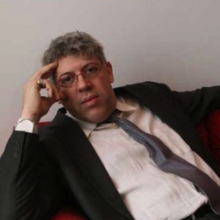
Marco Sangermano
Polytechnic University of Turin, Italy
Marco Sangermano is an Associate Professor at the Department of Applied Science and Technology, Politecnico di Torino. He earned his degree in Chemistry from the University of Turin in 1994 and completed his PhD at Politecnico di Torino, focusing on cationic photopolymerization. He conducted postdoctoral research at Rensselaer Polytechnic Institute (USA) and held research stays at IPF Dresden, McGill University, and Monash University. His research interests include cationic photopolymerization, polymer film properties, surface modification, and nanostructured polymer coatings. He has co-authored around 200 scientific publications and holds six patents.
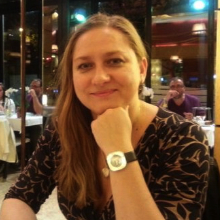
Maia Sokolova
European Chemical Agency, Finland
Maia Sokolova is a Scientific Officer at the European Chemicals Agency (ECHA), focusing on the assessment and regulation of chemicals within the European Union. She holds a PhD in the Phase Behaviour of Supercritical Fluid Mixtures from the University of Nottingham, and a Master’s degree in Environmental Sciences from TalTech – Tallinn University of Technology. Maia’s expertise lies in sustainable chemistry, with a strong emphasis on safer alternatives and green technologies, contributing to various research projects in sustainable chemical processes and regulatory affairs.
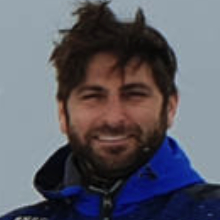
Andrea Spolaor
Institute of Polar Science (CNR-ISP), Italy
Andrea Spolaor is a researcher at the Institute of Polar Sciences, National Research Council of Italy (CNR). His work primarily focuses on paleoclimate studies and snow-atmosphere interactions, with particular attention to post-depositional processes. He specializes in trace element measurements (and their speciation) in ice cores, with a specific focus on iron, due to its role in ocean fertilization, and halogens, as they are linked to sea ice variability. He is also interested in the impacts of past civilizations on atmospheric chemistry. Additionally, he is involved in aerosol measurements in polar environments to study the biogeochemical cycles of trace elements, biogenic compounds, and black carbon, as well as recent variations. He has participated in numerous polar scientific expeditions in the Arctic, Antarctica, and alpine regions and actively contributes to mass balance estimations of glaciers in Svalbard.
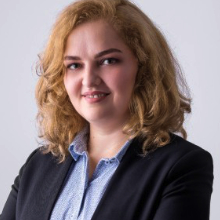
Anamaria Todea
Politehnica University of Timişoara, Romania
Anamaria Todea is an Associate Professor at Politehnica University of Timișoara, Faculty of Industrial Chemistry and Environmental Engineering. She holds a Ph.D. in Chemical Engineering, specializing in enzymatic synthesis and characterization of polyester biomaterials. Her research focuses on biocatalysis, biopolymers and biodegradation of polymers, with international experience at Wageningen UR and Delft University of Technology. She has contributed to multiple national and European research projects and participated in international workshops and conferences. Her expertise includes chromatography, spectroscopy, protein purification, and genetic engineering techniques.
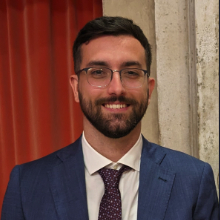
Giacomo Trapasso
Ca’ Foscari University of Venice, Italy
Giacomo Trapasso obtained his bachelor’s degree in Sustainable Chemistry and Technologies in 2018 from the Ca’ Foscari University of Venice (Italy) and his master degree in Science and Technology of Bio- and Nanomaterials in 2020 from the same university. In 2024 he got his Ph.D. in Environmental Sciences in co-participation with the Institute of Membrane Technology (ITM-CNR) in Rende (Italy) and with the Green Chemistry Centre of Excellence (GCCE) in York (UK). In 2024 he was awarded for the best PhD thesis in the field of the green and sustainable chemistry by the Italian Chemical Society (SCI). He has also been nominated Italian delegate IUPAC Young Observer from 2024 to 2025. His research mainly focuses on the development of greener procedures for the synthesis of bio-based platform chemicals, biopolymers, and green solvents.
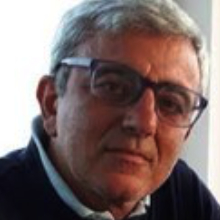
Francesco Trotta
University of Turin, Italy
Francesco Trotta is full professor of Industrial Chemistry at the Department of Chemistry at the University of Torino. He also was an associate researcher to the Institute of Membrane Technology (ITM-CNR).
He is president of the Green Science for Sustainable Development Foundation (GSSD). Member of the American Chemical Society (ACS), Italian Chemistry Society (SCI), president of the Italian Association of Chemistry and Technology of Cyclodextrins and member of the Italian Scientist Association (ISA). He is author or co-author of 280 scientific papers, 20 industrial patents, 1 book, 7 book chapters. His research focuses on Cyclodextrin Chemistry, Polymer synthesis and modification, Drug delivery systems, Molecular Imprinted Polymers and Membrane, Phase Transfer Catalysis.
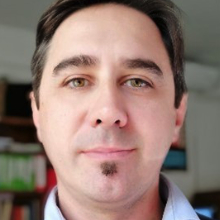
Luigi Vaccaro
University of Perugia, Italy
Luigi Vaccaro is Full Professor of Organic Chemistry, Università degli Studi di Perugia. He is Coordinator of the National Doctorate in Catalysis and coordinator of the Doctorate School in Chemical Sciences of the University of Perugia. Prof. Vaccaro is Co-Author of over 260 scientific publications, including reviews and books. His research focuses on Multifunctional heterogeneous catalysts designed for flow reactors, Bio-based fuels and design of Safer solvents and chemicals.
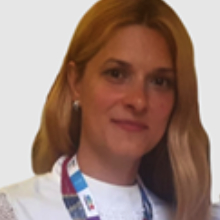
Aurelia Vişa
“Coriolan Drăgulescu” Institute of Chemistry, Romanian Academy, Romania
Aurelia Vişa is a Senior Researcher at the “Coriolan Drăgulescu” Institute of Chemistry, Romanian Academy, where she obtained her PhD in 2006. She was a Marie Curie Fellow at Institute of Analytical Chemistry, Leipzig University, Germany between 2003-2004. Since 2007 her expertise has been in phosphonate metal organic frameworks and various applications in different disciplines, such as environmental protection and catalysis.
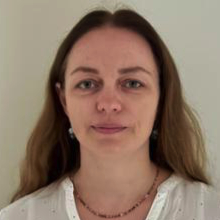
Polina Yaseneva
University of Cambridge, UK
Polina Yaseneva has studied environmental chemistry to MChem degree and obtained her PhD in Chemistry (specialisation in heterogeneous catalysis). After post-doc position at the Department of Chemical Engineering and Biotechnology at University of Cambridge, she obtained a Senior Research Fellowship at the Institute for Sustainability Leadership also in Cambridge. In 2023 Polina was appointed a lecturer in Sustainability and LCA at the University London College (UK).
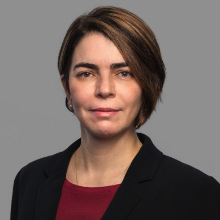
Vania Zuin Zeidler
Leuphana University, Germany
Vania Zuin Zeidler is a Full Professor at Leuphana University (Germany), specializing in Green and Sustainable Chemistry. She coordinates the MSc program in Sustainability Science and serves as Pro-Dean of Gender and Diversity. Her research focuses on green analytical methods for bioactive compounds from agro-industrial residues. She has received multiple international awards, including the IUPAC CHEMRAWN VII Prize and the ACS-CEI Award, and is a Fellow of the Royal Society of Chemistry.

